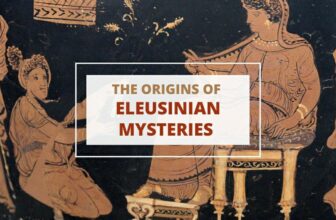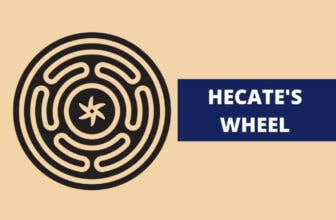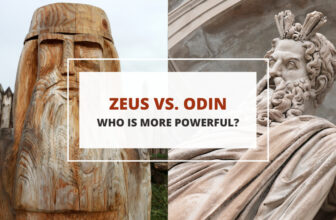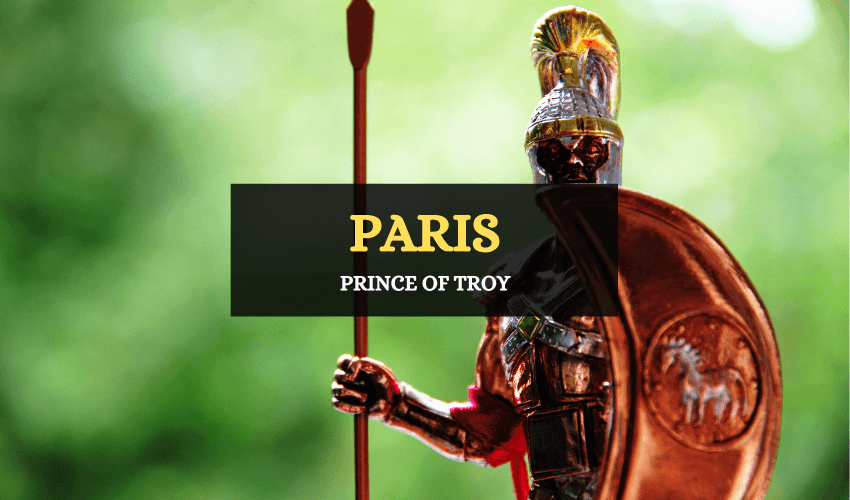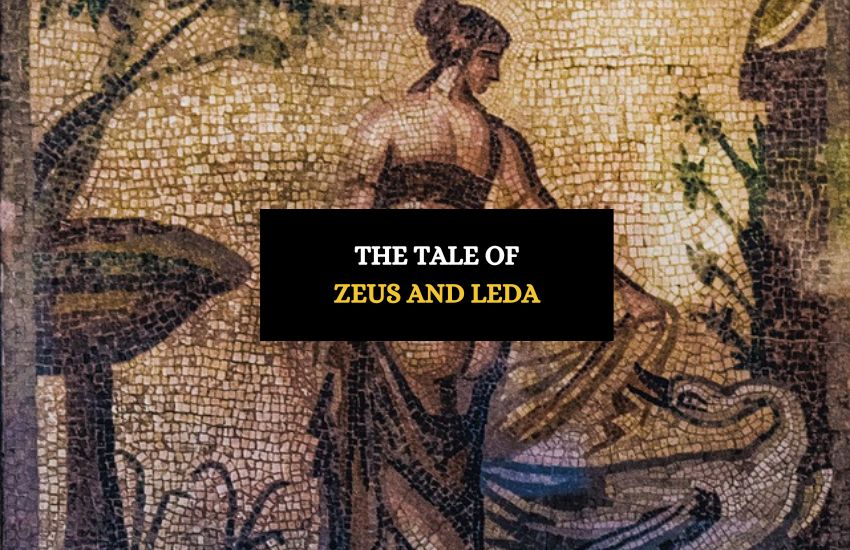
Table of Contents
The world of Greek mythology is filled with captivating tales of love, war, and deception, but few stories are as intriguing as the myth of Zeus and Leda. This ancient myth tells the story of how Zeus, the king of the gods, seduced the beautiful mortal woman Leda in the guise of a swan.
But the story doesn’t end there. The myth of Zeus and Leda has been retold countless times throughout history, inspiring artists, writers, and poets to explore themes of power, desire, and the consequences of giving in to temptation.
Join us on a journey through this fascinating myth and discover why it continues to captivate and inspire us today.
The Seduction of Leda
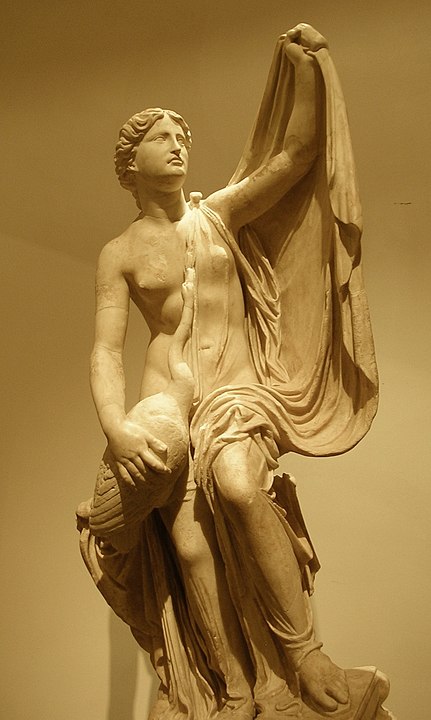
The myth of Zeus and Leda was a tale of seduction and deception that took place in ancient Greece. The story began when Zeus, the king of the gods, became enamored with Leda, a mortal woman known for her beauty.
Zeus, always the master of disguise, decided to approach Leda in the form of a beautiful swan. As Leda was bathing in a river, she was startled by the sudden appearance of the swan but was soon entranced by its beauty. She caressed the bird’s feathers and offered it some bread, unaware of the true identity of her visitor.
As the sun set, Leda began to feel a strange sensation. She was suddenly consumed with desire and unable to resist the swan’s advances. Zeus, taking advantage of Leda’s vulnerability, seduced her, and they spent the night together.
The Birth of Helen and Pollux
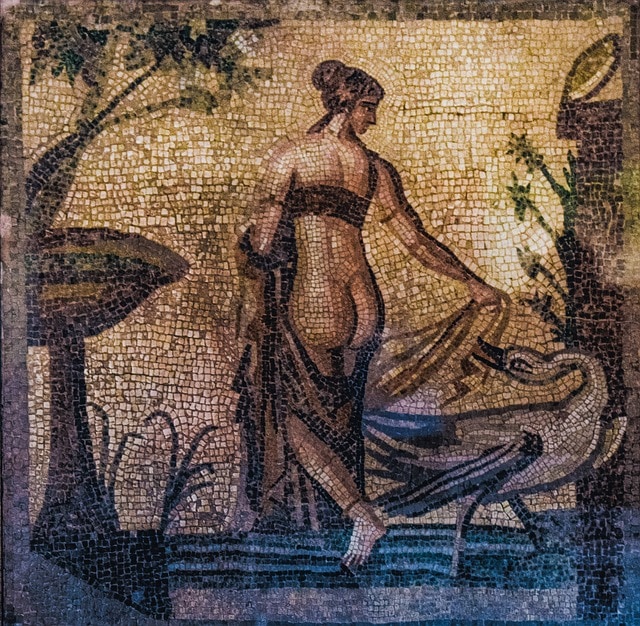
Months later, Leda gave birth to two children, Helen and Pollux. Helen was known for her exceptional beauty, while Pollux was a skilled warrior. However, Leda’s husband, Tyndareus, was unaware of the true identity of the children’s father, believing them to be his own.
As Helen grew older, her beauty became renowned throughout Greece, and suitors from far and wide came to court her. Eventually, Tyndareus chose Menelaus, the king of Sparta, as her husband.
The Abduction of Helen
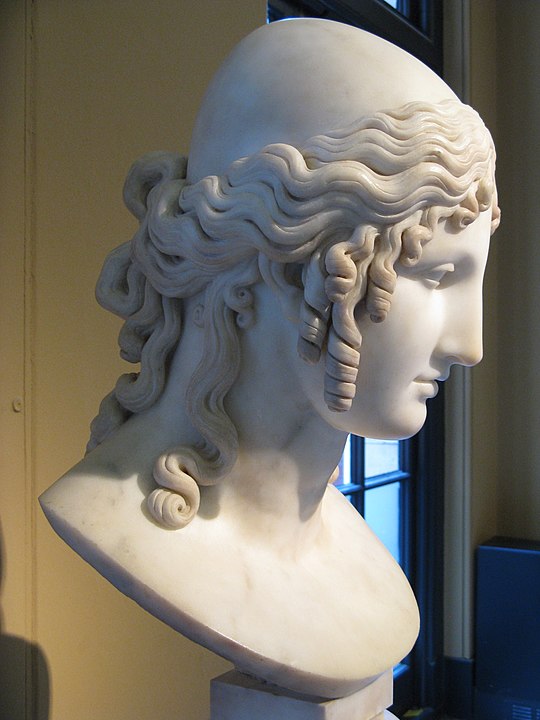
However, the myth of Zeus and Leda does not end with the birth of Helen and Pollux. Years later, Helen is abducted by Paris, a Trojan prince, which leads to the famous Trojan War.
It’s said that the abduction was orchestrated by the gods, who were seeking revenge on the mortals for their hubris. Zeus, in particular, was angry with the mortals and saw the Trojan War as a way to punish them.
Alternate Versions of the Myth
There are alternate versions of the myth of Zeus and Leda, each with their own unique twists and turns that make for a fascinating story. While the basic elements of the story remain the same, there are variations in how the events unfold and the characters involved.
1. The Swan’s Betrayal
In this version of the myth, after Zeus seduces Leda in the form of a swan, she becomes pregnant with two eggs, which hatch into four children: the twin brothers Castor and Pollux, and the sisters Clytemnestra and Helen. However, unlike in the traditional version of the myth, Castor and Pollux are mortal, while Clytemnestra and Helen are divine.
2. Nemesis’ Revenge
In another variation of the myth, Leda is not actually seduced by Zeus in the form of a swan, but instead becomes pregnant after being raped by the god. This version of the story places more emphasis on the idea of divine punishment, as it is said that Zeus is later punished by Nemesis, the goddess of retribution, for his actions.
3. Eros Interferes
In a different version of the myth, the god of love, Eros, plays a significant role. As Zeus approaches Leda in the form of a swan, Eros shoots an arrow at Leda, causing her to fall deeply in love with the bird. The arrow also causes Zeus to feel a strong desire for Leda.
This version emphasizes the power of love and desire in driving the actions of the gods and mortals alike. It also suggests that even the gods are not immune to the influence of Eros and the emotions that he represents.
4. Aphrodite Approaches Leda
In some versions of the myth, it is not Zeus who approaches Leda in the form of a swan, but rather Aphrodite, the goddess of love. Aphrodite is said to have taken on the form of a swan to escape the attention of her jealous husband, Hephaestus. After seducing Leda, Aphrodite leaves her with an egg, which later hatches into Helen.
5. The Birth of Polydeuces
Leda becomes pregnant with two eggs, which hatch into four children: Helen, Clytemnestra, Castor, and Polydeuces (also known as Pollux). However, unlike in the traditional version of the myth, Polydeuces is the son of Zeus and is immortal, while the other three children are mortal.
The Moral of the Story
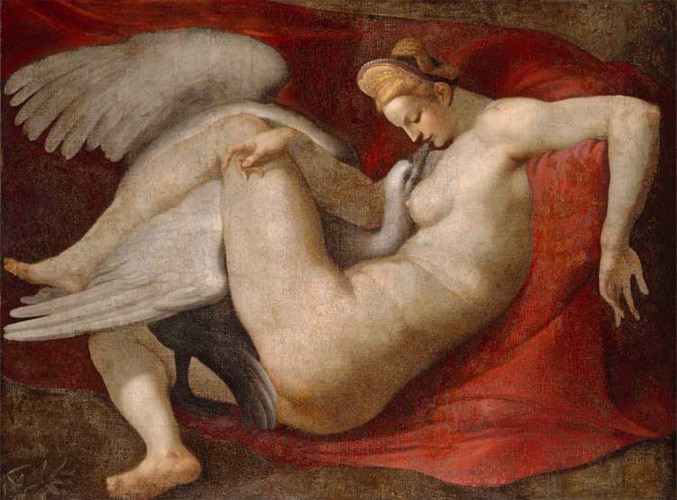
The story of Zeus and Leda may seem like just another tale of the Greek gods indulging in their primal desires, but it holds an important moral lesson that is still relevant today.
This is a story about power and consent. In the myth, Zeus uses his power and influence to seduce Leda without her knowledge or consent. This shows that even the most powerful people can use their status to take advantage of others, which is never okay.
The story also highlights the importance of understanding and respecting boundaries. Zeus disrespected Leda’s right to privacy and bodily autonomy, and he abused his position of power to manipulate her into a sexual encounter.
Overall, the story of Zeus and Leda teaches us that consent is key, and that everyone deserves to have their boundaries respected. It’s a reminder that we should always strive to treat others with kindness, empathy, and respect, regardless of our own power or status.
Leda and the Swan – A Poem by W. B. Yeats
A sudden blow: the great wings beating still
Above the staggering girl, her thighs caressed
By the dark webs, her nape caught in his bill,
He holds her helpless breast upon his breast.
How can those terrified vague fingers push
The feathered glory from her loosening thighs?
And how can body, laid in that white rush,
But feel the strange heart beating where it lies?
A shudder in the loins engenders there
The broken wall, the burning roof and tower
And Agamemnon dead.
Being so caught up,
So mastered by the brute blood of the air,
Did she put on his knowledge with his power
Before the indifferent beak could let her drop?
The Legacy of the Myth

The myth of Zeus and Leda has inspired numerous works of art, literature, and music throughout history. From ancient Greek pottery to contemporary novels and films, the tale of seduction and deception has captivated the imaginations of artists and writers alike.
The erotic nature of the encounter has been emphasized in many depictions, while others have focused on the consequences of desire and the power dynamics between mortals and the gods. The story has been retold and adapted in countless ways, continuing to inspire and influence creatives to this day.
Wrapping Up
The story of Zeus and Leda has captivated people for centuries and has been retold in many different ways throughout history. The myth has inspired countless works of art, literature, and music, and continues to fascinate and intrigue people to this day.
Whether viewed as a cautionary tale of the dangers of giving in to desire or as a reminder of the power dynamics between mortals and gods, the myth of Zeus and Leda remains a timeless and captivating story.




